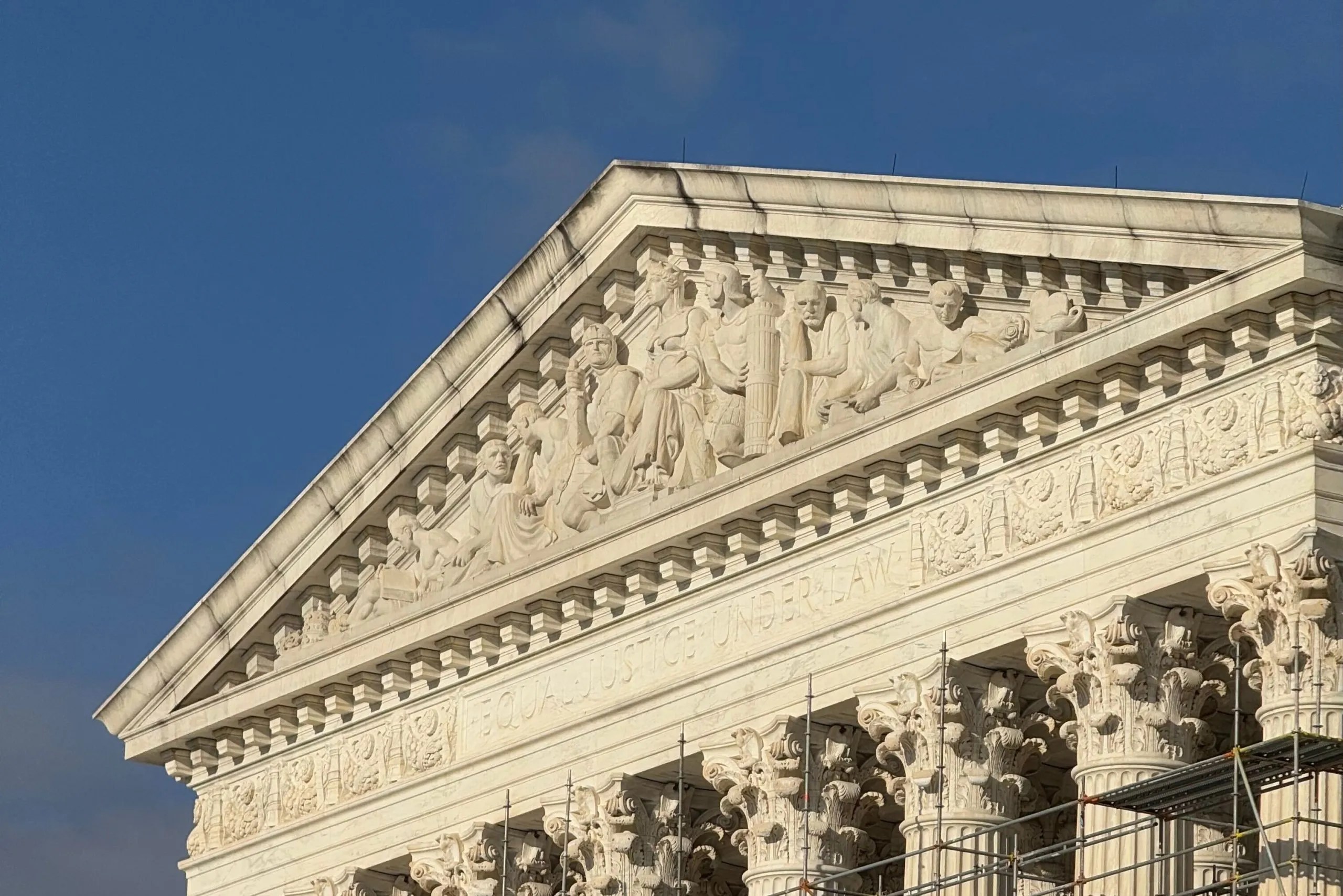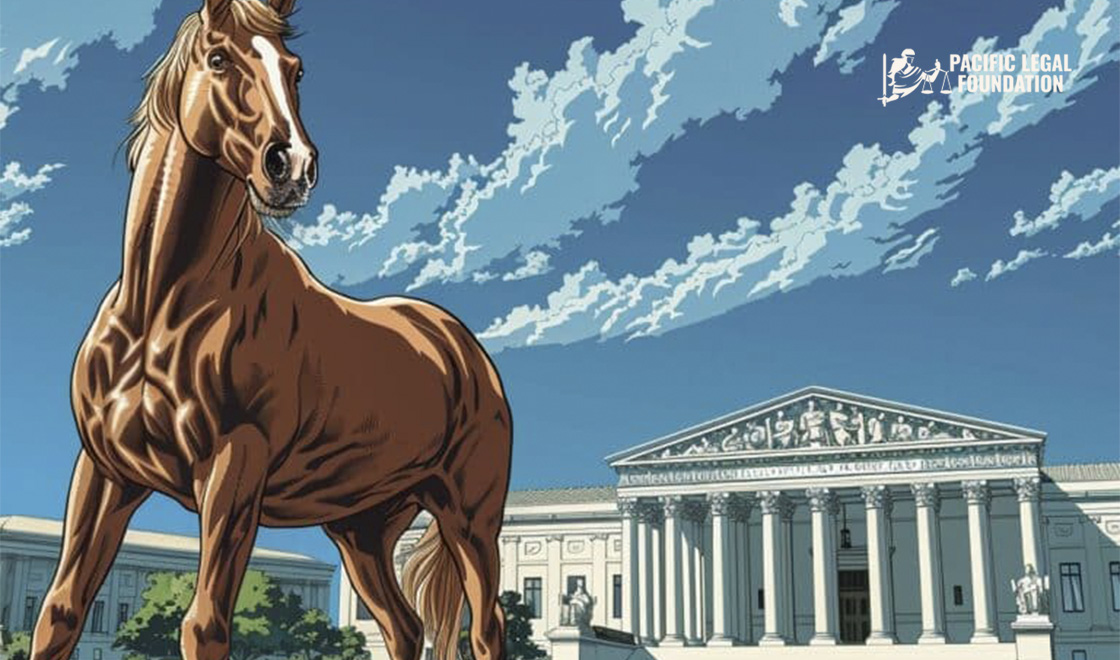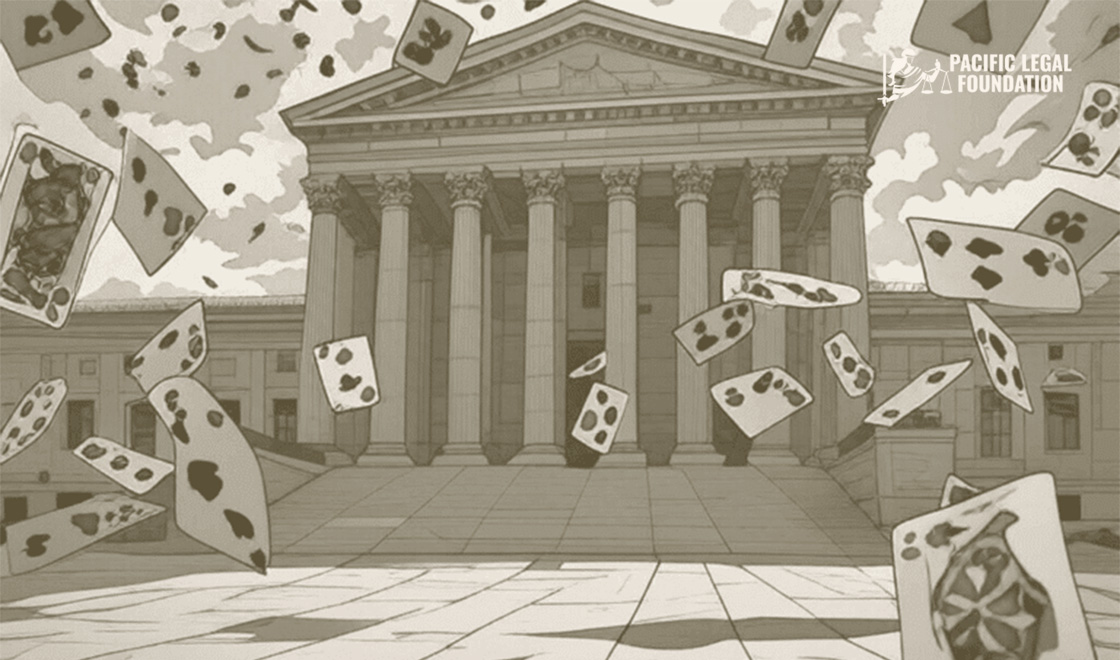SCOTUStoday for Wednesday, October 8


Chief Justice Melville Fuller, who served from 1888-1910, took the judicial oath on this day in 1888. To mark the occasion, consider shaking someone’s hand. Fuller instituted the practice of having the justices shake hands before taking the bench and before private conferences “as a reminder that differences of opinion on the Court did not preclude overall harmony of purpose,” according to the Supreme Court’s website.
Morning Reads
- Police: Man arrested at D.C. Catholic church had 200 homemade explosives (Emma Uber, The Washington Post) — D.C. court records show that the man arrested on Sunday morning before a church service expected to be attended by several Supreme Court justices, known as the Red Mass, “had more than 200 handmade destructive devices” in a tent outside the cathedral and a notebook in which he “expressed animosity toward the Catholic Church, Supreme Court justices, members of the Jewish faith and U.S. Immigration and Customs Enforcement,” according to The Washington Post. The man, Louis Geri, “faces eight charges in connection to the incident Sunday, including manufacture or possession of a weapon of mass destruction in furtherance of a hate crime.” He is being held without bond.
- What is the Alliance Defending Freedom? (Abbie VanSickle, The New York Times) — Attorneys with the Alliance Defending Freedom were in front of the court on Tuesday representing Kaley Chiles in her challenge to Colorado’s “conversion therapy” ban. The law firm, “founded more than three decades ago as a legal-defense fund focused on conservative Christian issues, has become a mainstay before the Supreme Court in recent years, particularly in high-profile culture war cases,” according to The New York Times. ADF also is involved in upcoming cases on transgender athletes and faith-based pregnancy centers.
- 5th Circuit will reconsider Louisiana’s 10 Commandments law after partial court struck it down (Patrick Wall, The Times-Picayune) — The full U.S. Court of Appeals for the 5th Circuit agreed on Monday to hear a case on a Louisiana law requiring “public schools and colleges to post the Ten Commandments in classrooms,” according to The Times-Picayune. A three-judge panel previously held that the law is “plainly unconstitutional.” The dispute “has been closely watched as a test of the traditional divide between church and state, and legal observers say it’s likely that the U.S. Supreme Court will ultimately hear the case.”
- Former Attorney General Eric Holder calls on Democrats to focus on Supreme Court expansion, term limits (Hanna Panreck, Fox News) — During an appearance on the At Our Table podcast, former Attorney General Eric Holder called on the Democratic Party to “focus on expanding the Supreme Court,” according to Fox News. “I think the Supreme Court has to be reformed, potentially, you know, expanded. We cannot simply allow this court to continue to do that which it has done. They don’t focus on precedent, they focus on personnel. And by that, I mean, you know, they think, ‘Alright, we’ve got six votes and we can now do things that are inconsistent with precedent, long-term precedents that have been put in place,’ to the detriment of our democracy, to the detriment of fairness — and that means political fairness as well as economic fairness,” Holder said. At minimum, he added, the Democratic Party platform should include a call for term limits of 18 years for Supreme Court justices.
- Enshrine Nine (Edward Whelan, NYU Law’s Democracy Project) — Edward Whelan also addressed Supreme Court expansion in a recent column for NYU Law’s Democracy Project, although, unlike Holder, he argued against it. “Packing the Court would threaten to destroy its legitimacy as an institution independent of politics. To be sure, the process of nominating and confirming Supreme Court justices is inherently and inescapably political. But it’s one thing to have politics—and, yes, political hardball—shape how vacancies are filled as they arise. It’s quite another to have politics create a whole new set of seats for the purpose of transforming the Court,” he wrote.
SCOTUS Quick Hits
- The justices will hear argument today in two cases: Bost v. Illinois State Board of Elections (on the circumstances under which a federal candidate can challenge state election rules) and U.S. Postal Service v. Konan (on whether someone can sue the government over intentionally undelivered mail). In the coming days, SCOTUSblog will have an argument analysis for each case.
- On Monday, the court declined to temporarily block a district court order requiring changes to the Google Play app store based on its violation of antitrust law. The court offered no explanation for its denial, as is its custom on the interim docket.
- The justices will take part in a private conference on Friday, where they will discuss cases and petitions. An order list outlining some of what was decided at the conference is expected on Tuesday at 9:30 a.m. EDT.
A Closer Look: Jurisdiction Stripping
As discussed in some of the news above, although Supreme Court justices have life tenure, Congress has the power to check the court’s behavior through structural reforms (such as changing the number of justices), affecting its makeup (by confirming and impeaching justices), and through some other legislative actions (such as controlling the judiciary’s budget).
Perhaps one of the most direct (and less mentioned) mechanisms is jurisdiction stripping. Under Article III, the court has what is known as “original jurisdiction” – which means that it is the first to hear and rule on the dispute – over “[c]ases affecting Ambassadors, other public Ministers and Consuls, and those in which a State shall be Party.” The court hears all other cases on appeal from a lower-court decision. And, according to the Constitution, the Supreme Court’s appellate jurisdiction is subject to “such Exceptions, and . . . such Regulations as the Congress shall make.” To many, this has been understood to mean that lawmakers can restrict the kinds of cases the Supreme Court can review on appeal.
Congress has generally used jurisdiction stripping only in isolated instances. In the 1869 case of Ex parte McCardle, for example, the court upheld the legislative branch’s power to deny the Supreme Court’s authority to hear a habeas petition on appeal. More recently, in 1996, the Illegal Immigration Reform and Immigrant Responsibility Act limited the court’s ability to review deportation orders.
As Stephen Wermiel wrote in his SCOTUSblog column, jurisdiction stripping follows broader discussions on the separation of powers, recently reflected in the No Kings Act proposed by Senate Democrats in 2024, which would strip the Supreme Court’s jurisdiction over presidential immunity cases after Trump v. United States (and send the cases instead to lower courts). Even though that bill may not go anywhere, it has put jurisdiction stripping back in the news.
SCOTUS Quote
“He presides over a conference not of 8 subordinates, whom he may direct or instruct, but of eight associates who, like him, have tenure during good behavior, and who are as independent as hogs on ice.” — Then-Associate Justice William Rehnquist in 1976
On Site
Argument Analyses
The Supreme Court on Tuesday morning appeared largely sympathetic to a Colorado licensed counselor who is challenging the state’s ban on conversion therapy – that is, treatment intended to change a client’s sexual orientation or gender identity – for young people. A majority of the justices seemed to agree with the counselor, Kaley Chiles, that the ban discriminates against her based on the views that she expresses in her therapy. But several justices suggested that, rather than striking the law down outright, the court should send the case back to the lower courts for them to take a closer look at whether the law passes constitutional muster.
To learn more about argument in Chiles v. Salazar, read Amy’s analysis.
After Monday’s oral argument in Berk v. Choy, it’s difficult to predict how the court would rule on the question of whether state rules for medical malpractice litigation should apply in federal courts, in part because several of the justices said very little or even nothing at all, according to Ronald Mann, who analyzed the argument for SCOTUSblog. “I think it is safe to say that several justices will reject Delaware’s procedures, and hard to believe that [Justice Elena] Kagan won’t write something, but not at all clear what side the court, as a whole, will favor,” he wrote.
Contributor Corner
In his latest Courtly Observations column, Erwin Chemerinsky reflected on his belief that the 2025-26 term will be “momentous in deciding the future of American democracy” because of cases in which President Donald Trump “is seeking to greatly expand executive power.” The court already has agreed to hear argument on the president’s removal power and tariffs, and it could add cases on birthright citizenship, deportations, and funding cuts in the near future.
The profound question for this term, and I believe for the future of our constitutional democracy, is whether the court will serve as a check on Trump.
In his latest Immigration Matters column, César Cuauhtémoc García Hernández highlighted recent comments from Justices Amy Coney Barrett and Sonia Sotomayor about the limitations of the interim, or emergency, docket and explored issues that can emerge when the court fails to explain its short, unsigned orders.
Unlike cases that reach the court’s merits docket, which involve lengthy fact-finding and legal argumentation over years, emergency docket cases move relatively quickly. Often, the court issues a decision within months of the lawsuit being filed in a federal district court. Most emergency docket decisions are short pronouncements. Since they often focus on a specific procedural matter, it isn’t unusual for the justices to recycle sentences and fail to explain their reasoning. Issuing a decision quickly is valuable, but it comes at a cost.
Posted in Featured, Newsletters

